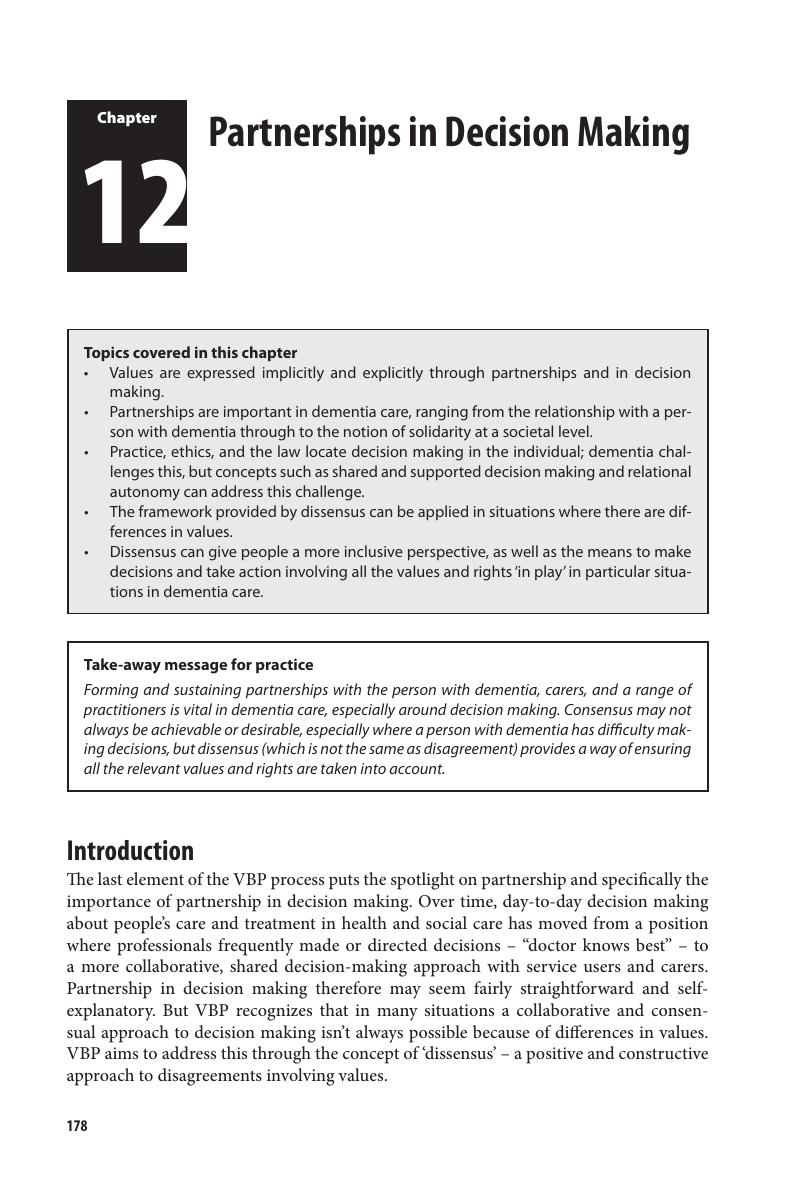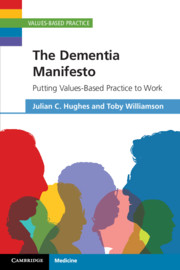Book contents
- The Dementia Manifesto
- Endorsements for The Dementia Manifesto
- The Dementia Manifesto
- Copyright page
- Dedication
- Contents
- Foreword
- Preface
- Acknowledgements
- Authors’ Note
- Abbreviations
- Introduction
- Chapter 1 Manifestos, Dementia, and Values-Based Practice
- Chapter 2 Enhancing Values-Based Practice and Developing a Dementia Manifesto
- Chapter 3 The Dementia Manifesto
- Chapter 4 Rights and Values Are Everywhere in Dementia!
- Chapter 5 Reasoning about Values
- Chapter 6 Relationships – Values and Person-Centred Care
- Chapter 7 Working Together
- Chapter 8 Scientifically Speaking
- Chapter 9 The Science-Driven Principle and Dementia
- Chapter 10 The Squeaky Wheel Principle
- Chapter 11 Communication, End of Life, and Values
- Chapter 12 Partnerships in Decision Making
- Conclusion
- Index
- References
Chapter 12 - Partnerships in Decision Making
Published online by Cambridge University Press: 08 February 2019
- The Dementia Manifesto
- Endorsements for The Dementia Manifesto
- The Dementia Manifesto
- Copyright page
- Dedication
- Contents
- Foreword
- Preface
- Acknowledgements
- Authors’ Note
- Abbreviations
- Introduction
- Chapter 1 Manifestos, Dementia, and Values-Based Practice
- Chapter 2 Enhancing Values-Based Practice and Developing a Dementia Manifesto
- Chapter 3 The Dementia Manifesto
- Chapter 4 Rights and Values Are Everywhere in Dementia!
- Chapter 5 Reasoning about Values
- Chapter 6 Relationships – Values and Person-Centred Care
- Chapter 7 Working Together
- Chapter 8 Scientifically Speaking
- Chapter 9 The Science-Driven Principle and Dementia
- Chapter 10 The Squeaky Wheel Principle
- Chapter 11 Communication, End of Life, and Values
- Chapter 12 Partnerships in Decision Making
- Conclusion
- Index
- References
Summary

- Type
- Chapter
- Information
- The Dementia ManifestoPutting Values-Based Practice to Work, pp. 178 - 198Publisher: Cambridge University PressPrint publication year: 2019



